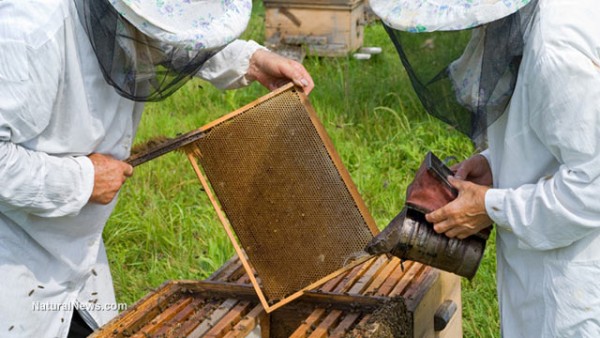
Advertisement
Researchers from Boston University and Abraxis LLC recently discovered significant amounts of glyphosate in honey.
For their study, the researchers tested five categories of food items: honey, corn and pancake syrup, soy milk, tofu and soy sauce. 62% of the conventional honeys and 45% of the organic honeys sampled had levels of glyphosate above the minimum established limits.
Interestingly, the levels of glyphosate found in the tested honeys were much higher in those countries that permitted GM crops. Honey from the United States, in fact, contained the highest levels.
What about organic honey?
So, how did so many of the 69 honey samples, including 11 organic samples, tested contain such high levels of glyphosate?
Well, given that a single honeybee can fly over 6 miles to find nectar and bring back a total of 250 pounds of nectar a year, it is almost impossible for them to avoid harmful substances. Pesticides, herbicides and toxins released into the air from factories and cities make it nearly impossible for all but the most remote beehives to be chemical-free.
Moreover, there’s also the issue of wax. Bees are at risk for Varroa mites, an external parasite that reproduces in the hives, so conventional beekeepers often use pesticides to get rid of them. Beeswax retains chemicals, so over time, these chemicals build up and make their way into the honey produced by the bees.
While the use of pesticides directly on the beehives isn’t an issue for beekeepers using organic methods, the issue is where they source their wax. A survey of pesticide residues in beehives found that over 98% of them contained at least one pesticide. With such a large amount of wax contaminated, it’s likely that organic beekeepers who purchase commercially available wax will be unable to avoid these toxins.
Is there any way around these pesticides?
Is there any way around the amount of herbicides and pesticides in honey? Unfortunately, probably not.
With the increased use of chemicals in farming nowadays, herbicides and pesticides will inevitably (and unfortunately) make their way into beehives, causing a ripple effect throughout bee colonies.
If you’re going to purchase honey, your best bet is to be a smart, well-informed consumer. Talking to local beekeepers at farmers’ markets can give you an idea of the quality of honey available directly in your area. Even though some organic honeys are not totally safe from glyphosate contamination, choosing organic would always lessen the odds of getting toxic chemicals in your food.
Remember: You can always choose wisely.
Sources used:
Submit a correction >>
This article may contain statements that reflect the opinion of the author
Advertisement
Advertisements















